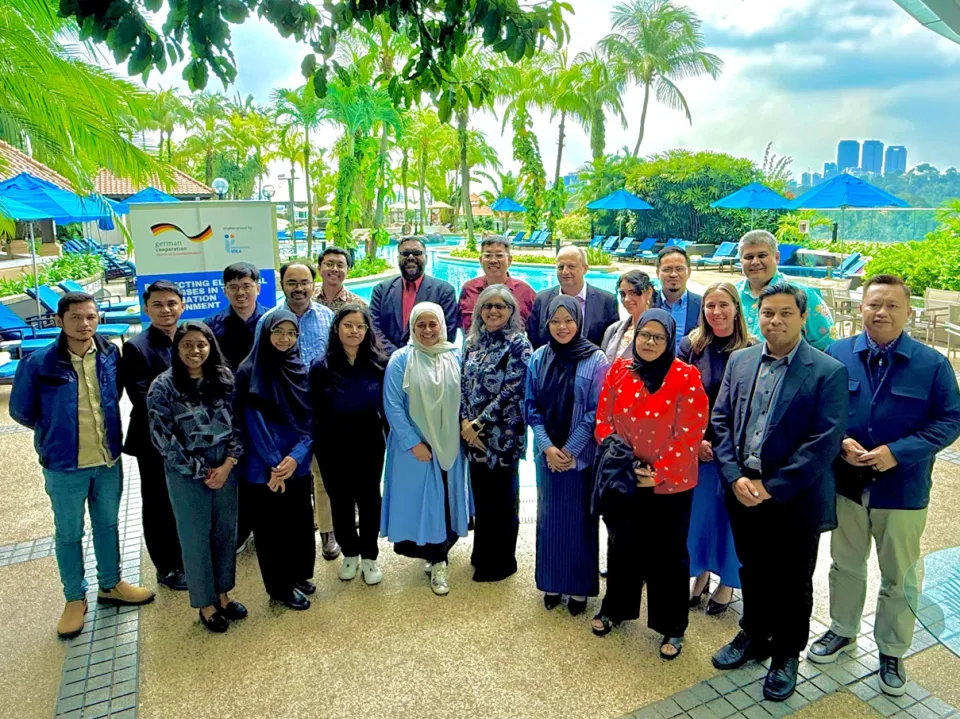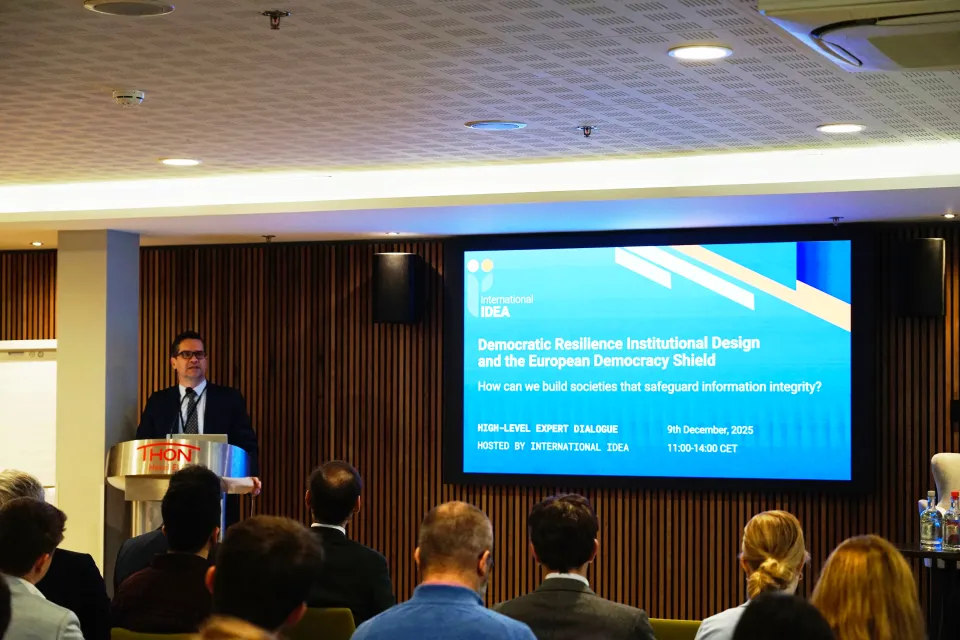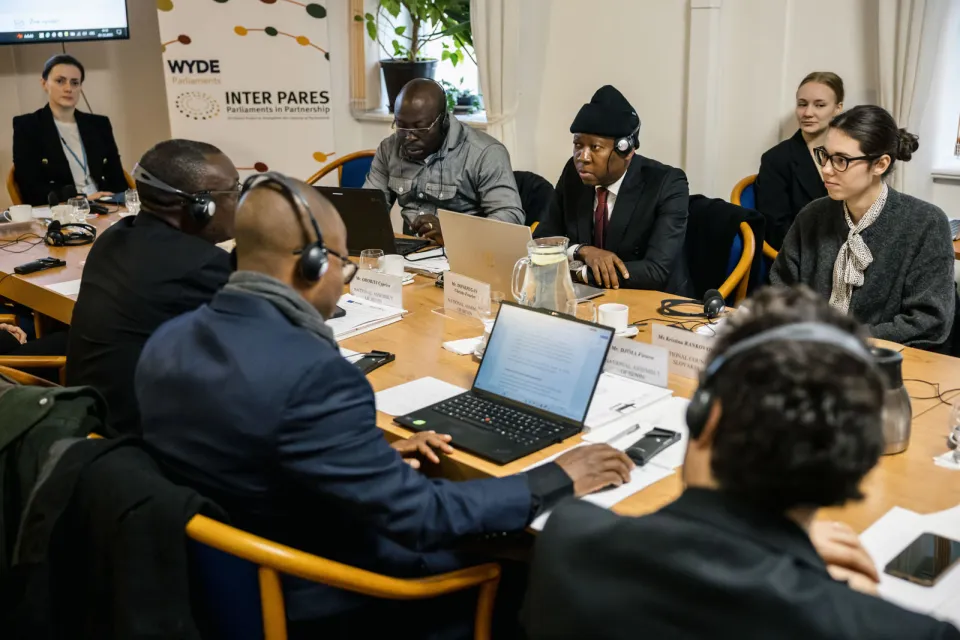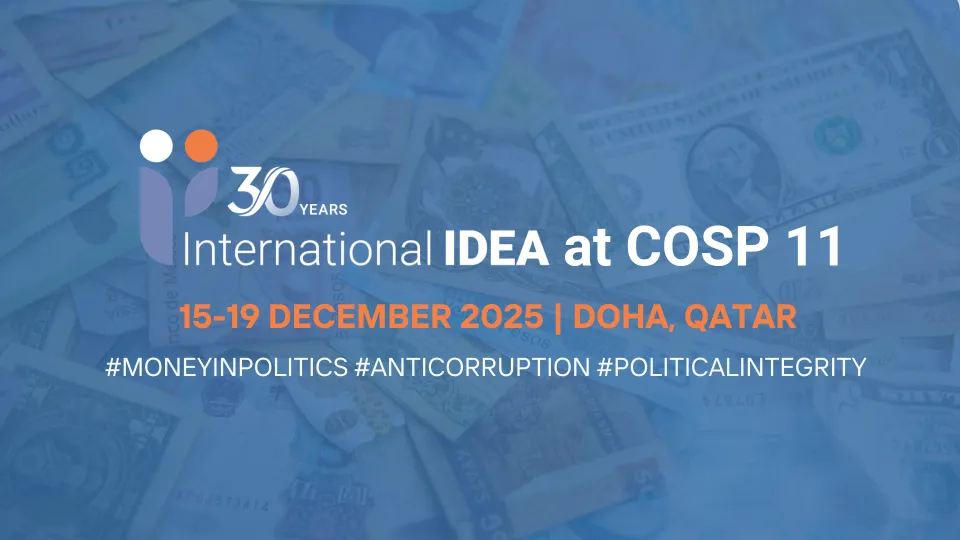While the billions of dollars raised for this November’s US Presidential elections are making global headlines, similar problems on the other side of the Atlantic go much more unnoticed. The role of money in European politics is perhaps the greatest factor contributing to European citizens’ lack of trust in their democracies. Over the past two years, serious political finance allegations have hit long-standing ruling parties in France, Spain and Italy. Large public protest over oligarch influence in politics have occurred from Ukraine, to Greece and Moldova. Suspicions that far right and left parties in Western Europe are funded by foreign powers abound. In April this year, the Panama Papers revealed the undisclosed personal wealth of several European political heavyweights, rocking the positions of Prime Ministers in Iceland, the UK and Ukraine.
How money in politics affects Europeans’ distrust in politics goes beyond the anecdotal. In a 2014 EU-opinion poll, only one in five citizens (22 per cent) expressed that the financing of political parties was sufficiently transparent and supervised (Special Eurobarometer 397, 2014: 41). There was little difference between those in the old and new EU Member States. In 2014, more than half of Europeans believed that bribery and the abuse of positions of power for personal gain are widespread among political parties (59 per cent). Only around one in five EU citizens (22 per cent) think that the financing of political parties is sufficiently transparent and supervised (Eurobarometer, March 2014). Only a record low 3 per cent of citizens trust political representatives to deal with complaints about corruption (Special Eurobarometer 397, 2014. p111). In Eastern Europe, although data are not as widely available as for the 28 EU-countries, political corruption scandals are if anything more pervasive. Transparency International’s 2015 corruption perception index placed the EU’s six Eastern neighbours between places 48 (Georgia) and place 130 (Ukraine), with political parties almost consistently among the weakest institutions. (TI 2015).
To help in stemming this tide, International IDEA has started to respond to various money in politics requests from within Europe. It has done so primarily by linking its existing global knowledge and networks to European stakeholders. In late 2015, International IDEA began translating its political finance handbook and policy briefs into Russian and Ukrainian. In February 2016, International IDEA was one of the main co-organisers of the Regional Conference on Money in Politics in Central and Eastern Europe. For the first time, over one hundred politicians, oversight agencies and watchdogs from twenty countries in the region met with political finance experts to discuss solutions to their many common challenges. This conference formed a regional follow-up to International IDEA’s Global Conference on Money in Politics, held in Mexico City in September 2015.
In various European countries, from Georgia to Bosnia, International IDEA has been invited to help build the online tools through which oversight agencies report and disclose the wealth of political parties to the greater public. Online reporting experiences from Estonia, the UK, Finland and Norway have been used to inspire some of these newcomers. Over the past year, International IDEA has shared its legislative best practices from around the world to help policy makers, academics and politicians in Italy, Sweden, and Spain. Furthermore, International IDEA has begun to make available some of the innovative ICT tools to political parties to help introduce greater internal transparency online.
Moving forward, International IDEA will continue to work together with national and international partner organisations, with an aim to further develop and maintain knowledge in this area.



